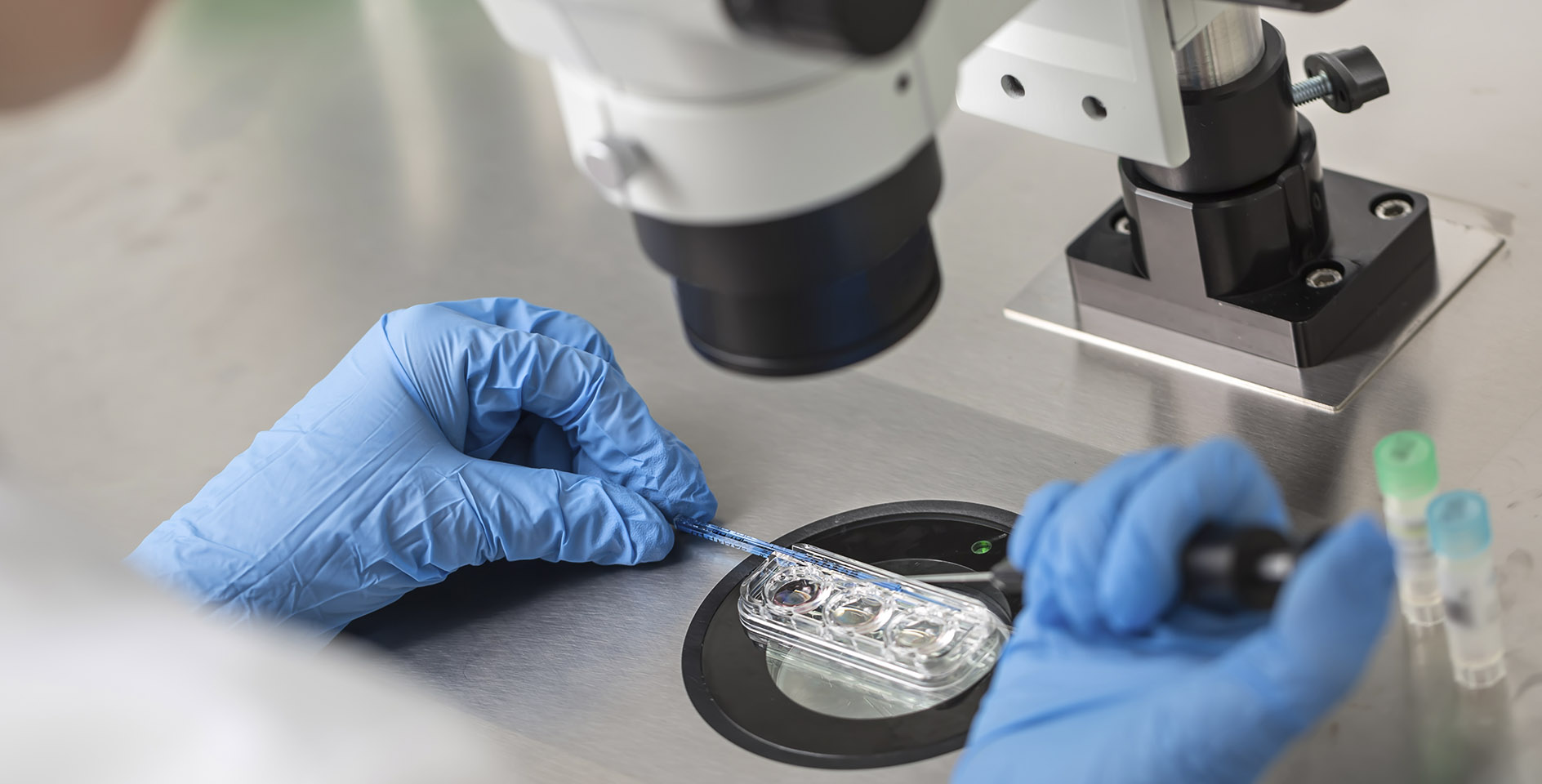In a scathing criticism of the President’s Council on Bioethics under the Bush administration, Harvard psychologist Steven Pinker said in a 2008 edition of the New Republic magazine, “The problem is that ‘dignity’ is a squishy, subjective notion, hardly up to the heavyweight moral demands assigned to it.” This was indicative of a future that will require almost no end to shoring up the pillars of human dignity.
To that end, three important renovation projects come to mind as necessary for a truly human future where inherent value is understood and celebrated: the reclamation of theological anthropology, the reappropriation of Christian-Hippocratism in medicine, and a recommitment to the Great Commandment.
Reclamation of Theological Anthropology
Reclamation of theological anthropology is the first priority in understanding, celebrating, and protecting human dignity. Since at least 1948, with the United Nations Universal Declaration of Human Rights, the notion of human dignity has been enshrined in international jurisprudence, treaties, and policy. One of the chief architects of the declaration was the formidable Catholic philosopher Jacques Maritain who described it as “the preface to a moral Charter of the civilized world.” Yet despite his erudition, when Maritain was asked about the declaration’s appeal for the protection of human rights he famously replied, “We agree about the rights but on condition no one asks us why!”
Christian theological anthropology answers the “why” of human rights by pointing to the “Who.”
Only human beings are made in God’s own image, and Jesus, fully God and fully man, sacralized our embodied humanity in his incarnation. Human rights, including the rights to life, liberty, equality, privacy, non-discrimination, etc., do not derive merely from a social contract but from the investiture of the God who made us and the Messiah who lived among us as a human person, was crucified, raised from the dead, and will return one day. We may happily use the publicly accessible language of human dignity, but Jews and Christians confess that human dignity has a divine origin.
Furthermore, as theologian Kelly Kapic reminds us in his recent volume, You’re Only Human, Christian theological anthropology teaches us that to be human is to be embodied, limited, dependent, relational, and much more.1Kelly Kapic, You’re Only Human (Grand Rapids, MI: Brazos Press, 2022). These necessary aspects of our humanity are divine gifts and human goods to be celebrated, protected, and cultivated from conception to natural death. Only a robust theological anthropology can anchor the notion of human dignity against the tsunami of late modernity.
Reappropriation of the Christian Hippocratic Tradition
A second pillar supporting human dignity is Christian-Hippocratism in medicine. Unfortunately, medical ethics too often focuses on moral dilemmas or public policy debates. We almost never ask the question, “What is medicine for?”
The Hippocratic tradition of the medical profession begins with the famous—but by now hardly ever recited—oath that acknowledges divine obligations and pledges as its first principle to “do no harm.” Down the ages, Christians appropriated and revised the oath for its affirmation of the patient as a person, the physician as a professional, and the practice of medicine obliging a responsibility to serve the common good, especially for the vulnerable who are suffering from illness and disease.
Today, patients have become customers, physicians providers, and medicine a consumer good. If we are to answer accurately the question, “What is medicine for?” we must resist a provider-of-services model—with its terrible implications—and reappropriate the Christian virtues of medicine.2Farr Curlin and Christopher Tollefsen, The Way of Medicine (Notre Dame, IN: University of Notre Dame Press, 2021) Physicians are not healthcare “providers,” they are professionals who should pledge to use their extensive training, wisdom of experience, and virtuous ethical judgment to help “patients” (literally, “sufferers”)—not customers or clients—mitigate, recover from, or face the fragility of our fallen humanity.
The profession of medicine can serve our common humanity by treating every patient as a possessor of human dignity, regardless of one’s age, state of health, or ability to pay. This also means that physicians should not kill their patients at the beginning of life or at the end of life. They should not mutilate bodies through transgender surgeries or grotesque “aesthetic” modifications, even if the patient requests it. Medicine should not cater to customer satisfaction but serve truly human goods to continue to be worthy of public trust.
Recommitment to the Great Commandment
Finally, another pillar on which human dignity rests is the Great Commandment—to love God with all one’s heart, mind, soul, and body, and one’s neighbor as oneself (Matt. 22:36-40). Love of neighbor has been the origin of many of the practices and institutions that respect, defend, and protect human dignity. For instance, the modern hospital system owes its existence to people of faith, love of God, and love of neighbor. Rabbinic sources often cite the second-century B.C. book of Ecclesiasticus as a reminder that medicine owes its origins to God:
“Honour a physician with the honour due unto him for the uses which ye may have of him: for the Lord hath created him. For of the most High cometh healing, and he shall receive honour of the king. The skill of the physician shall lift up his head: and in the sight of great men he shall be in admiration. The Lord hath created medicines out of the earth; and he that is wise will not abhor them” (38:1-4 KJV).
Christians have been leaders in medicine and in the building of hospitals because Jesus of Nazareth healed the sick and disabled.
Early Greeks and Romans made great contributions to medicine, but, as late University of Washington historian of medicine Albert Jonsen said in his A Short History of Medical Ethics, “the second great sweep of medical history begins at the end of the fourth century, with the founding of the first Christian hospital at Caesarea in Cappadocia, and concludes at the end of the fourteenth century, with medicine well ensconced in the universities and in the public life of the emerging nations of Europe.”3Albert Jonsen, A Short History of Medical Ethics (Oxford, UK: Oxford University Press, 2000), 13.
This extraordinary, formative period in medicine was characterized by the Church’s intimate involvement. Jonsen argues,
During these centuries the Christian faith … permeated all aspects of life in the West. The very conception of medicine, as well as its practice, was deeply touched by the doctrine and discipline of the Church. This theological and ecclesiastical influence manifestly shaped the ethics of medicine, but it even indirectly affected its science since, as its missionaries evangelized the peoples of Western and Northern Europe, the Church found itself in a constant battle against the use of magic and superstition in the work of healing. It championed rational medicine, along with prayer, to counter superstition.
As a means of caring for those who were ill, St. Basil of Caesarea founded the first hospital (c. 369), and Christian hospitals grew apace, spreading throughout both the East and the West. By the mid-1500s, there were 37,000 Benedictine monasteries alone that cared for the sick.
Furthermore, as Charles Rosenberg shows in his volume, The Care of Strangers: The Rise of America’s Hospital System, the modern hospital owes its origins to Judeo-Christian compassion.4Charles Rosenberg, The Care of Strangers: The Rise of America’s Hospital System (Baltimore, MD: John Hopkins University Press, 1995). Evidence of the vast expansion of faith-based hospitals is seen in the legacy of their names: St. Vincent’s, St. Luke’s, Mt. Sinai, Presbyterian, Mercy, and Beth Israel. These were all charitable hospitals, some of which began as foundling hospitals to care for abandoned children.
Similarly, in Europe, great hospitals were built under the auspices of the Judeo-Christian tradition. Indeed, an ancient French term for hospital is hôtel-Dieu (“hostel of God”). In 1863, the Société Genevoise d’Utilité Publique called on Swiss Christian businessman Jean Henri Dunant to form a relief organization for caring for wartime wounded. Thus, the emblem of the Red Cross was codified in the Geneva Convention a year later. And in Britain, Dame Cicely Saunders founded the hospice movement by establishing St. Christopher’s Hospice in the south of London in 1967.
These three pillars are reminders that human dignity is not an abstract concept to be protected, but a way of referring to the sacred value of real, living, embodied people made in the image of God. The future will demand that Southern Baptists and other Christians excavate, recover, and renovate these three pillars if human dignity is to stand.










